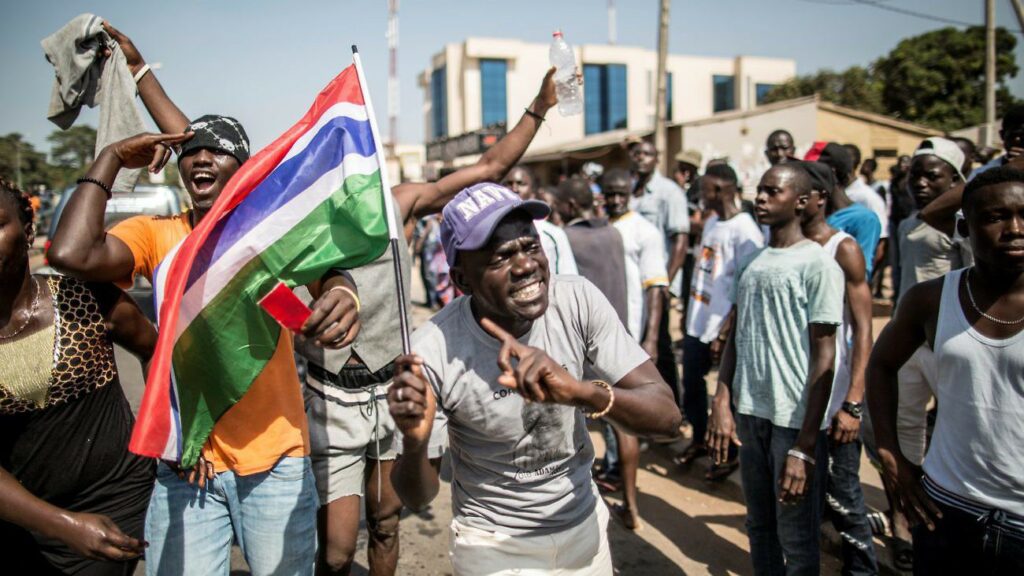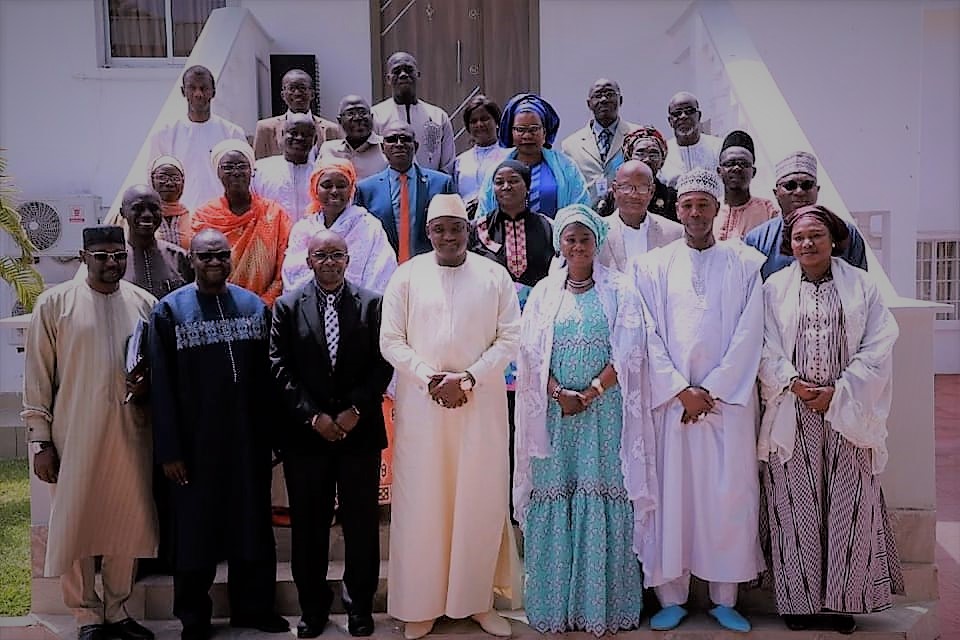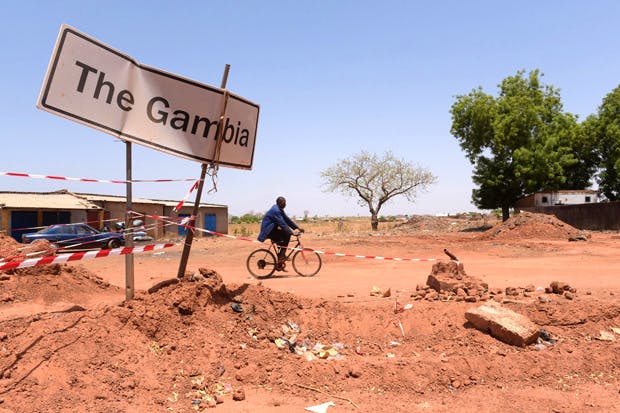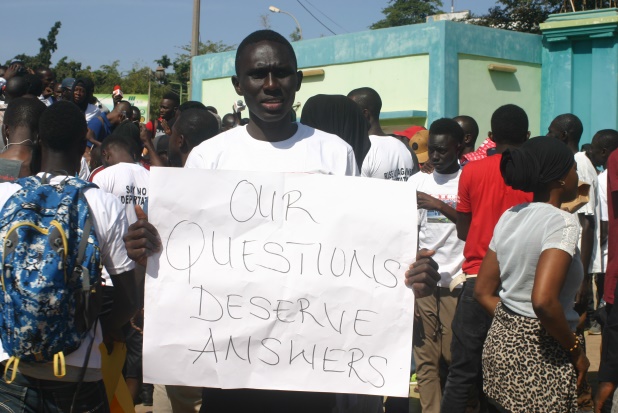
LONG READ:
We have heard it, and we have seen it with our own eyes. We have gazed at it, the argument being made that political power, the political divide, ethnic chauvinism, democratic decay, mega corruption, and a national crisis of tribalism that goes beyond polarisation the political divide in the country are the reality of Gambian politics.
However, they are not ‘the’ reality. They are ‘a’ reality — a created narrative of ethnicity. The culture of impunity reflects the impunity of the entire class of Gambian elites.
When public sector corruption is the operating system when the psychology of “confirmation bias” will not defeat disinformation and misinformation, the brand of politics of populism and embracing “big lie” politics of deception, when tribalism, nepotism replaces competence and mediocrity in public policy governance in theory and practice battling over impunity, it corrodes the rule of law.
The Gambia needs to create a new reality based on the new normal, be far more “helping your country do better,” to defend reasonable patriotism, accountability, and productivity.
At such a time, we need a new generation of transformative, visionary, and charismatic political actors is required. It is truly the time for the political next.
However, first, we must help the Gambia genuinely understand the depth of our collective loss that our way of life is broken. Gambians are disaffected, distrustful, and full of disdain.
This state of affairs, in part, is the result of generations of toxic political waste dumped into by “tangal cheeb politicians” and ” Sosalaaso political parties,” and “tribal mansas” who sought to exploit our fears and grievances for their political gains.
From the beginning, Gambians have imagined a way of being together as a country that takes for granted a kind of selfishness that masquerades as liberty and freedom. We have been willing to allow the belief in widespread prosperity to compromise our commitment to democracy, and we have allowed “Tribal Mansas” to wrap themselves around the essential runners of our way of life.
Each has grown and flourished as we have sought comfort in material possessions and illusions that allow us to take flight from the empty aspects of our lives. Even in moments of crisis that called for national sacrifice and, sometimes, a remaining of who we are as a nation, we responded with courage and commitment.
However, we also cleaved to these ideas that warp how we live together. It is only a matter of time, and time can be a fickle thing that we would end up right where we are now: in a place where it seems that too many have given up their stake in Gambian life for their selfish ends.

We need to reinvent political tolerance in the context of democratic theory and multiculturalism for our shared purpose of reinventing the Gambian democracy for the 21 Century. We hope that one day, our leaders at all levels will change and orient their ideas in leadership and make sound management.
As it turned out, why is the Gambia underdeveloped? This is not accidental. Above all, our current and past political actors were given a chance at a logic of policy failure and political survival, a catalyst for economic and political hemorrhages, tribalism, suspicion of people being witches, betrayal, and hysteria, to name a few.
To end extreme poverty and building shared prosperity, we have to do three things: promote patriotism, fight endemic corruption, meet ever-rising aspirations, which means that we cannot continue to do things business as usual, and expect progress.
At some point, our political elites’ past and present will have to repent. If half of the budget for education, healthcare, and infrastructural development goes into what it is theoretically meant for, we would have overcome most of our daunting challenges by now.
If leadership is driven by competence and patriotism, all the donor funds windfalls for decades would have meant something more than ballooning overhead expenditure and distorting the budget for personal benefit under the pretext of “national interest.”
Our challenges and threats in the modern Gambia are sheer political hypocrisy of double standards on unity in diversity, investing in cultural diversity and intercultural dialogue, erosion of values, and disloyalty, and how tribalism stunts Gambian emergent democracy.
On patriotic empathy: It is ultimately totally gone. The symbol, of course, is the thieving corrupt leadership, epitomized by the political class and the “tribal mansas.” who felt a sense of entitlement of the neurophilosophy of our divided politics of ” us versus them” and also the stink politics of the battle of the soul of “its our turn to eat.”
Gambians see what the “tangal cheeb politicians” and the “tribal mansas” are doing with power, and they have lost all commitments to doing anything right. After all, why should we suffer when these people are just there enjoying it.
Add the latest religious excesses, and we would not be too far from it. The overall effect is that so many Gambians lack compassion and patriotism. None. Even those paid to be patriotic do not show enough trust in our hospitals, our education; at the slightest sign of a cough, they go knocking on Harley-Davidson Street’s doors in London or some poor cousins in India.
If Gambian students were withdrawn from overseas schools, our politicians and senior government civil servants, and our business people stopped medical tourism (medical treatment) abroad today, a large chunk of foreign exchange we spend abroad on medical treatment and education ends up in at the Quadrangle treasury in Banjul!
Shockingly, many Gambians are happy when bad things happen to the Gambia. We have read commentaries on social media about how Gambians celebrate decadence of toxic political polarization in the country and tribal bigotry that reinforces the poisonous dynamics of hyper-partisan politics and the level of polarisation and the psychology of confirmation bias in our political culture, which erodes people’s trust in each of our democratic institutions.

We have seen people justifying the dictatorship acts of the previous administration. As far as we are concerned, it is proof the Adama Barrow government is not working, explaining their position on the toxic politics and a review of the cost of myopic executive management.
However, when Al-Qaeda brought down the Twin Towers in New York, America rose as a nation in one accord with one voice condemning the evil and demanding reprisal. Gambians have such unity when the baby Scorpion, the junior national team, won the Africa U-17 Cup of Nations in 2005 and 2009.
Furthermore, in 2005, the baby Scorpions caused one of the biggest upsets in FIFA U-17 World Cup history after defeating Brazil 3-1. Thus, the recent historic qualification for the first time of The Gambia’s Scorpion competes to the Africa Cup of Nations (AFCON).
It was such an auspicious occasion that unified a divided nation, its despised symbol, the springbok of a team that embraced all Gambians because nothing brings us together quite like football.
Previous administrations, including the incumbent, have (wrongly) tried to crack this challenge by running media campaigns. However, going through lobbyist and PR firms, generally throwing money at a challenge that requires, demands a lot more.
One thought ‘change’ offered a great opportunity to finally get it right until we began to see the curious slogan, “Change Begins with You.” Huh?
Government must understand and appreciate a delicate balance between civic responsibilities and citizens’ rights. For too long, the government has demanded accountability, paying scant attention to the rights of the Gambian people. This cannot produce a loyal or patriotic people.
Patriotism is about national pride. It is generally recognized that building a nation and its economy improves its social services. Therefore, one needs to increase the national satisfaction of the country.
The former Chief Minister of the Legislature of the British Virgin Islands, Ralph Telford O’Neal, OBE, some time ago delivered a speech. He was quoted as saying: “This patriotic pride is not about entitlement, or about being better than any other nation. It is about being self-aware. It is about knowing our history and honouring the sacrifices of our ancestors. It is about valuing our unique culture and preserving it in the modern world.
“It is about cherishing our sacred traditions and passing them on to our children. And it is about uplifting our community so that the success of one is properly understood as the success of all.”
Patriotism connotes the love of and loyalty to one’s own country. A patriot supports his country, is inspired by it, cares deeply for it, and is prepared to serve and defend it. The genuine PatriotismPatriotism of its citizens is of great benefit to any country.
A man or woman ought to be proud of the place to which he or she belongs.

Patriotism gives a country’s people a common purpose and rallies them to support their government in time of need. So that the Gambia may prosper and thrive now, and, in the future, we ought to cultivate a spirit of common purpose and patriotism – a sense of national pride.
The true patriot is proud of his country’s virtues and is eager to correct its deficiencies. It is also imperative to distinguish between Patriotism and Nationalism. The difference is vital since nationalism is often mistaken for patriotism.
Patriotism is developing a form of affection for one’s country, somewhat akin to family love. One loves his family because it is his, and so far, as he is concerned, that bond that draws him to other members is unbending.
The patriot, therefore, loves his country because he belongs to it. He can laugh at it in the same way that members of a family laugh at each other’s foibles; since affection takes for granted the imperfection of those whom it loves.
Nationalism, on the other hand, is an extreme form of PatriotismPatriotism. It is militant by nature, and its typical style is belligerent. The nationalist must prove that his country is always correct.
Patriotism should not be conditional, but the citizen should not be so blinded by it that he cannot face reality. The genuine patriot owes his duty to the country and not necessarily to its leaders. Therefore, wrong is wrong, no matter who does it or says it. Criticism is not unpatriotic.
We could do well always to remember the words of Mark Twain. They said, “Patriotism is supporting your country all the time, and the government when it deserves it. The challenges describe the threats, the significant signs of decay in our society’s physical, social, and moral fabric.

We have much work to do…years of hard work in which we need to rebuild the confidence of the Gambia in the Gambia, in which we need to see Gambians that are entirely loyal again to the Gambia.
We must target that point when the best advocates of the Gambia are not paid PR hacks in New York or London, but the generality of Gambians who genuinely believe in Gambians and are pleased with how their leaders demonstrate their faith in the country.
The challenges describe the threats, the significant signs of decay in our society’s physical, social, and moral fabric. We must focus on Gambian values, particularly those that compose the ethics of personal advantage, which is on ethics of self—interested, outcome-oriented, individualism.
We believe that this ethics is the cause of the Gambian decay. We suggest reforms that Gambia’s managerial leadership must undertake to address these problems and change values.
What does this government need to do to produce the suitable ingredient and mix? Do they know what to do and how to go about it? Can it happen? Will it happen? Time will tell.
By Alagi Yorro Jallow











Recent Comments